Faculty Publications
Sample listing of current faculty book publications
Please see faculty directory pages for full lists of publications.
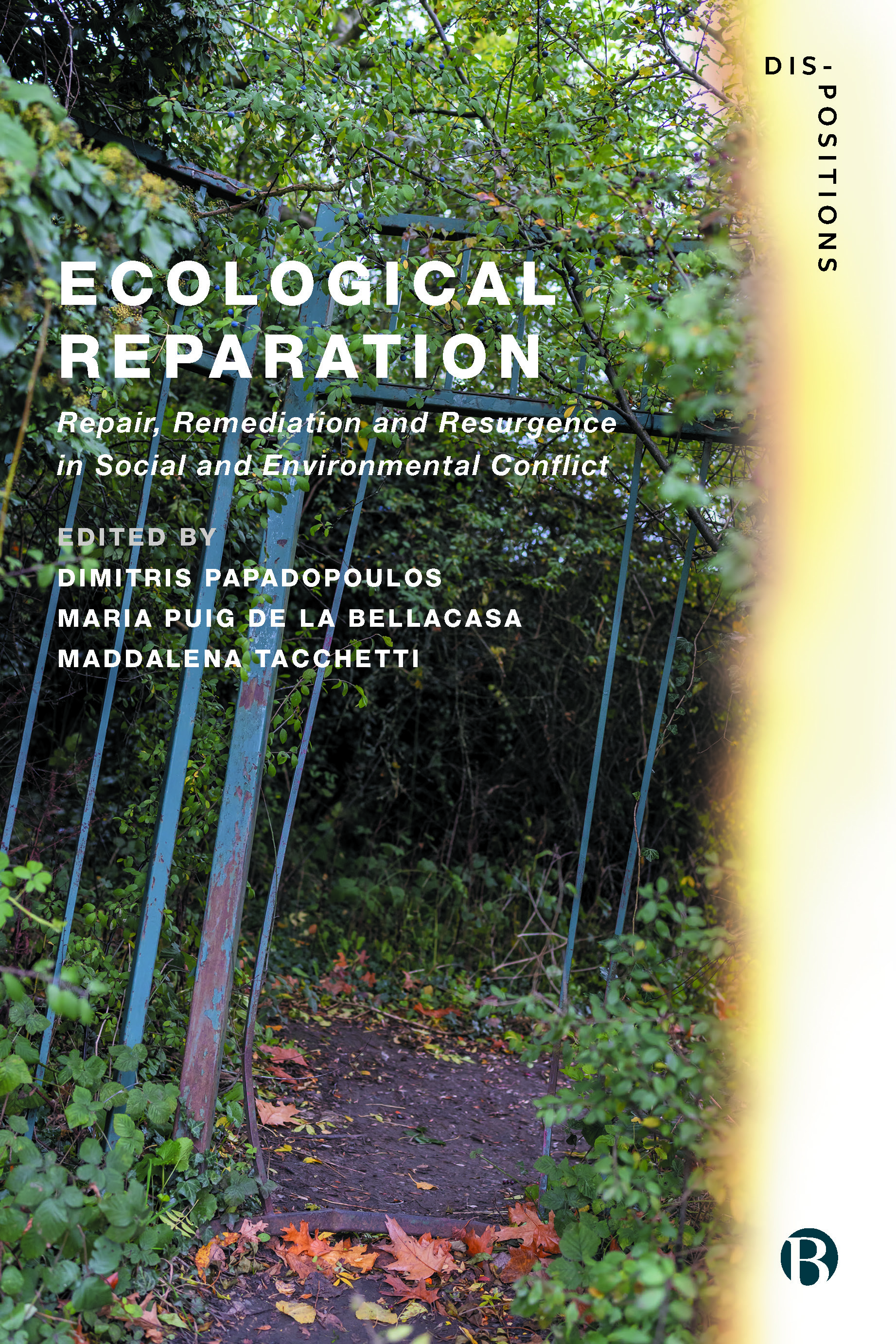 |
Dimitris Papadopoulos, Maria Puig de la Bellacasa, and Maddalena Tacchetti, Editors et. al - Ecological Reparation: Repair, Remediation and Resurgence in Social and Environmental Conflict - Bristol University Press, 2024 How do we engage with the threat of social and environmental degradation while creating and maintaining liveable and just worlds? Researchers from diverse backgrounds unpack this question through a series of original and committed contributions to this wide-ranging volume. The authors explore practices of repairing damaged ecologies across different locations and geographies and offer innovative insights for the conservation, mending, care and empowerment of human and nonhuman ecologies. This ground-breaking collection establishes ecological reparation as an urgent and essential topic of public and scholarly debate. |
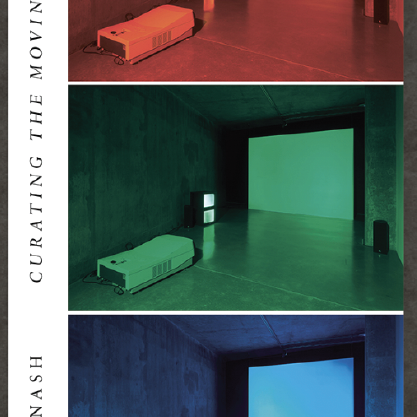 |
Mark Nash - Curating the Moving Image - Duke University Press, 2023 In Curating the Moving Image, influential curator and theorist Mark Nash draws on his work at Documenta11, the Venice Biennale, and elsewhere to explore the possibilities of contemporary curation. Constructing this richly illustrated book as a curatorial project in and of itself, Nash outlines several key concepts that range from exhibition architecture and curating as an affective and artistic practice to post-cold war aesthetics and contemporary Chinese art. Throughout these essays on contemporary art, film, and installation, Nash offers critical commentary and reflection on exhibitions he has curated, including those that focus on socialist and utopian ideals following the end of the Cold War. He also folds curating into a discussion of forms of artistic production that are connected to alternative trajectories of collective and collaborative practice. Ultimately, Nash demonstrates that the art world and contemporary curatorial practice constitute some of the most important tools for social and aesthetic exchange in the twenty-first century.
|
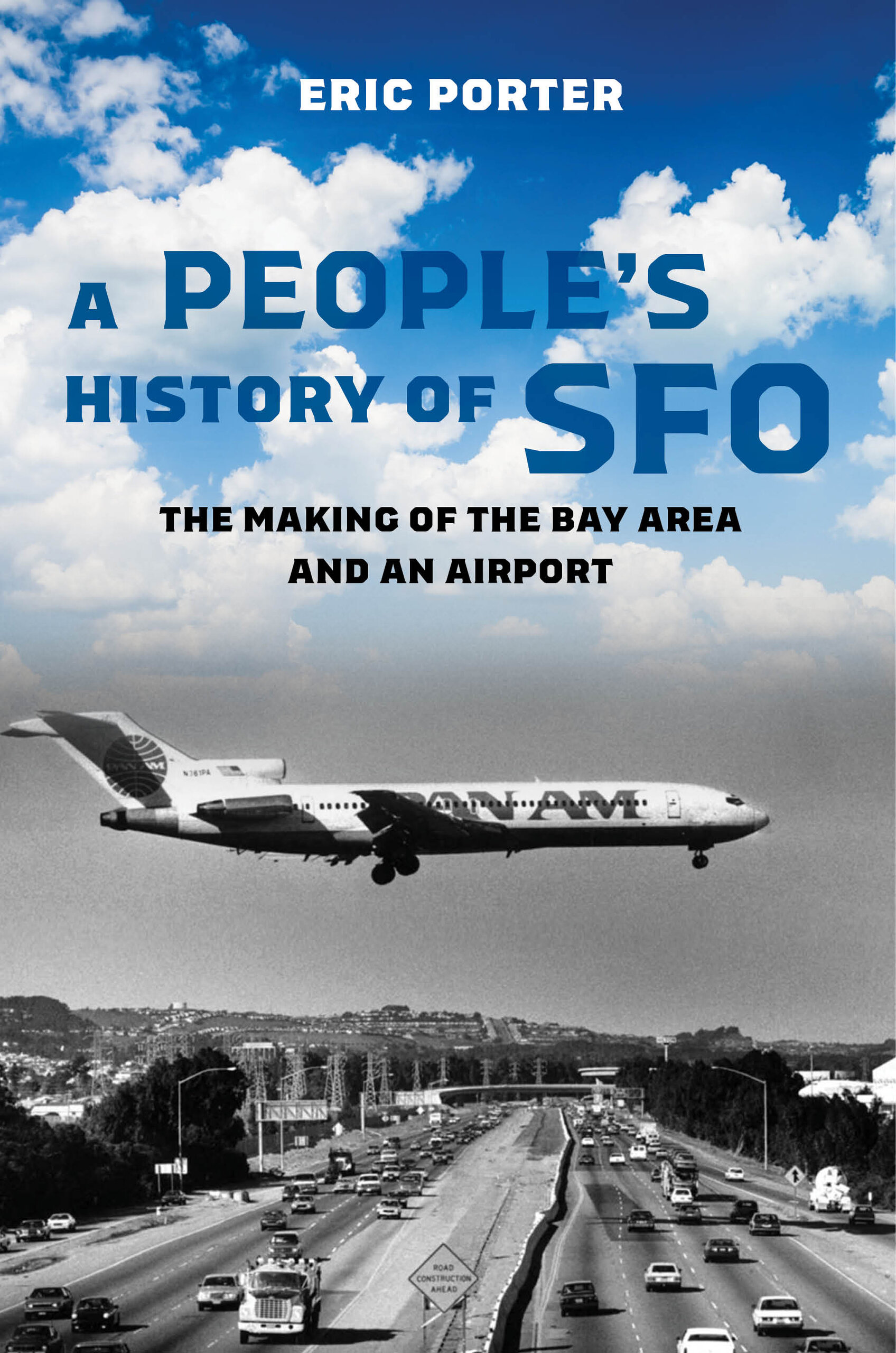 |
Eric Porter - A People's History of SFO: The Making of the Bay Area and an Airport - University of California Press, 2023 A People's History of SFO uses the history of San Francisco International Airport (SFO) to tell a multifaceted story of development, encounter, and power in the surrounding region from the eighteenth century to the present. In lively, engaging stories, Eric Porter reveals SFO's unique role in the San Francisco Bay Area's growth as a globally connected hub of commerce, technology innovation, and political, economic, and social influence.Starting with the very land SFO was built on, A People's History of SFO sees the airport as a microcosm of the forces at work in the Bay Area—from its colonial history and early role in trade, mining, and agriculture to the economic growth, social sanctuary, and environmental transformations of the twentieth century. In ways both material and symbolic, small human acts have overlapped with evolving systems of power to create this bustling metropolis. A People's History of SFO ends by addressing the climate crisis, as sea levels rise and threaten SFO itself on the edge of San Francisco Bay. |
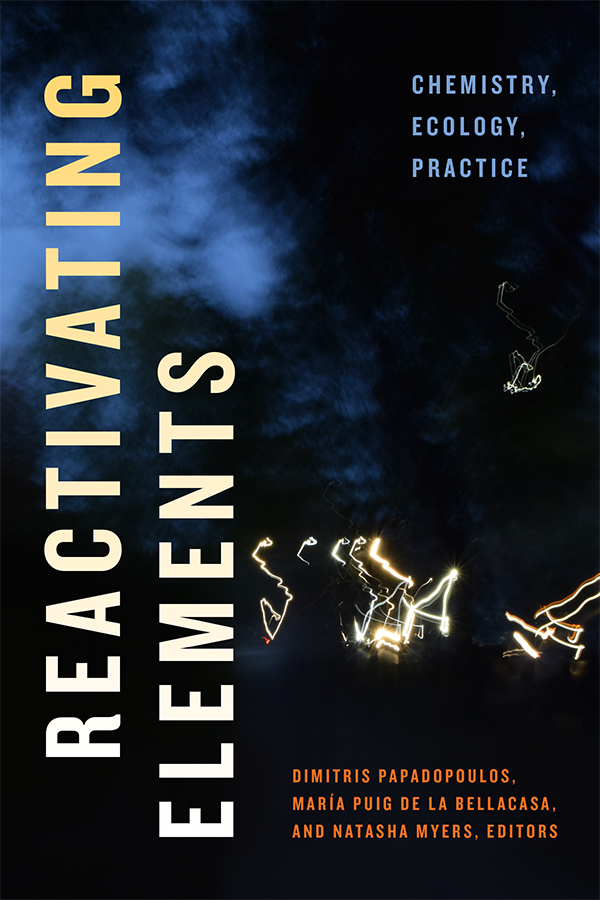 |
Dimitris Papadopoulos, Maria Puig de la Bellacasa, and Natasha Meyers, Editors et. al - Reactivating Elements: Chemistry, Ecology, Practice - Duke University Press, 2022 The contributors to Reactivating Elements examine chemicals as they mix with soil, air, water, and fire to shape Earth's troubled ecologies today. They invoke the elements with all their ambivalences as chemical categories, material substances, social forms, forces and energies, cosmological entities, and epistemic objects. Engaging with the nonlinear historical significance of elemental thought across fields—chemistry, the biosciences, engineering, physics, science and technology studies, the environmental humanities, ecocriticism, and cultural studies—the contributors examine the relationship between chemistry and ecology, probe the logics that render wind as energy, excavate affective histories of ubiquitous substances such as plastics and radioactive elements, and chart the damage wrought by petrochemical industrialization. Throughout, the volume illuminates how elements become entangled with power and control, coloniality, racism, and extractive productivism while exploring alternative paths to environmental destruction. In so doing, it rethinks the relationship between the elements and the elemental, human and more-than-human worlds, today’s damaged ecosystems and other ecologies to come. |
|
Isaac Julien, Artist et. al - Lessons of the Hour: Frederick Douglass - Isaac Julien Studio/ Memorial Art Gallery of the University of Rochester/Frances Young Tang Teaching Museum and Art Gallery at Skidmore College/DelMonico Books D.A.P., 2022 This sumptuously illustrated artist's book and reader documents Lessons of the Hour (2019), the ten-screen film installation and series of related photographic artworks by the internationally acclaimed artist Isaac Julien CBE RA (born 1960), which honor the public and private life of one the most important figures in US history: Frederick Douglass. The visionary African American orator, philosopher, intellectual and self-liberated freedom fighter was born into slavery in Maryland and went on to develop a remarkable aesthetic theory through his thinking and writing on abolitionism and Black self-representation through the apparatus of photography. Isaac Julien: Lessons of the Hour – Frederick Douglass takes the reader on a journey through Douglass’ life and thinking, and is a vital consideration of his political and aesthetic legacy. |
|
 |
Robert Mesiter - Justice is an Option - University of Chicago Press, 2021 More than ten years after the worst crisis since the Great Depression, the financial sector is thriving. But something is deeply wrong. Taxpayers bore the burden of bailing out “too big to fail” banks, but got nothing in return. Inequality has soared, and a populist backlash against elites has shaken the foundations of our political order. Meanwhile, financial capitalism seems more entrenched than ever. What is the left to do? |
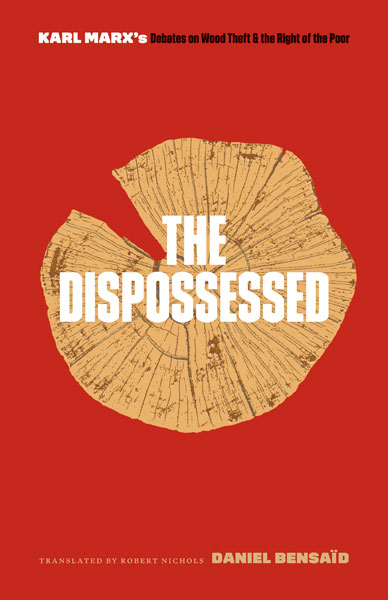 |
Robert Nichols, Translator and Daniel Bensaïd, Author - The Dispossessed: Karl Marx's Debates on Wood Theft and the Right of the Poor - University of Minnesota Press, 2021 Daniel Bensaïd examines Marx’s early writings to establish a new framework for addressing the rights of the poor, the idea of the commons, and private property as a social institution. In addition to Bensaïd’s prescient work of political philosophy, The Dispossessed includes new translations of Marx’s original “theft of wood” articles and an introduction by Robert Nichols lucidly contextualizing the essays. |
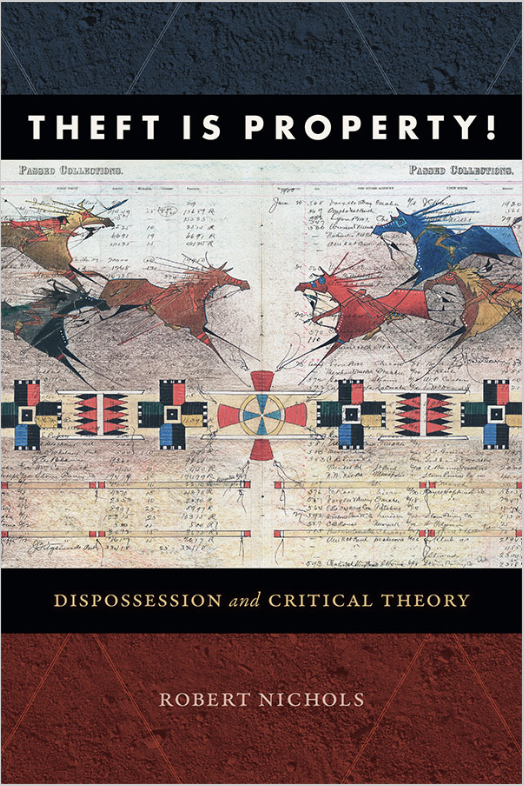 |
Robert Nichols - Theft is Property!: Disposession and Critical Theory - Duke University Press, 2020 Drawing on Indigenous peoples' struggles against settler colonialism, Theft Is Property! reconstructs the concept of dispossession as a means of explaining how shifting configurations of law, property, race, and rights have functioned as modes of governance, both historically and in the present. Through close analysis of arguments by Indigenous scholars and activists from the nineteenth century to the present, Robert Nichols argues that dispossession has come to name a unique recursive process whereby systematic theft is the mechanism by which property relations are generated. In so doing, Nichols also brings long-standing debates in anarchist, Black radical, feminist, Marxist, and postcolonial thought into direct conversation with the frequently overlooked intellectual contributions of Indigenous peoples. |
 |
Massimiliano Tomba - Insurgent Universality An Alternative Legacy of Modernity - Oxford University Press, 2019 This book advocates for a tradition of political universality as an alternative to the juridical universalism of the Declaration. Insurgent universality isn't based on the idea that we all share some common humanity but, rather, on the democratic excess by which people disrupt and reject an existing political and economic order. Going beyond the constitutional armor of the representative state, it brings into play a plurality of powers to which citizens have access, not through the funnel of national citizenship but in daily political practice. |
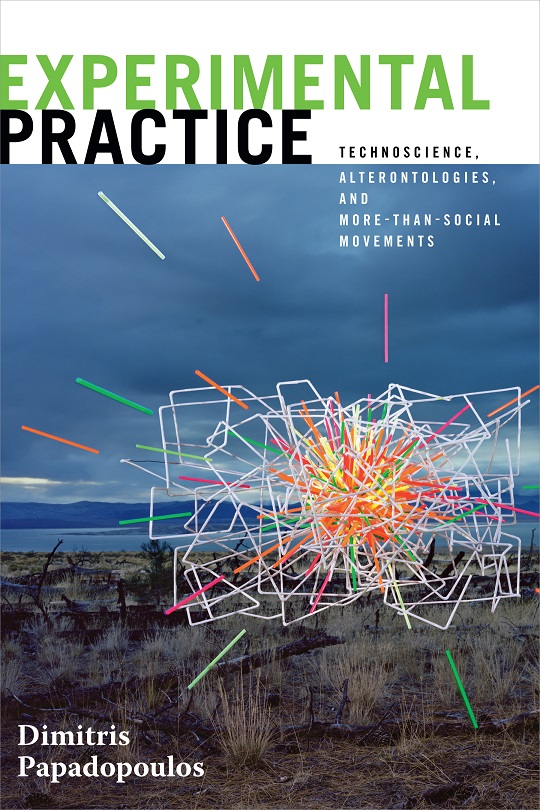 |
Dimitris Papadopoulos - Experimental Practice: Technoscience, Alterontologies, and More-Than-Social Movements - Duke Unviersity Press, 2018 In Experimental Practice Dimitris Papadopoulos explores the potential for building new forms of political and social movements through the reconfiguration of the material conditions of existence. Rather than targeting existing institutions in demands for social justice, Papadopoulos calls for the creation of alternative ontologies of everyday life that would transform the meanings of politics and justice. Inextricably linked to technoscience, these “alterontologies”—which Papadopoulos examines in a variety of contexts, from AIDS activism and the financialization of life to hacker communities and neuroscience—form the basis of ways of life that would embrace the more-than-social interdependence of the human and nonhuman worlds. Speaking to a matrix of concerns about politics and justice, social movements, matter and ontology, everyday practice, technoscience, the production of knowledge, and the human and nonhuman, Papadopoulos suggests that the development of alterontologies would create more efficacious political and social organizing.
|
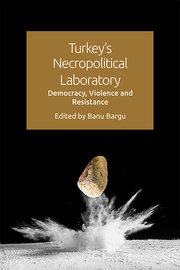 |
Banu Bargu, Editor - Turkey's Necropolitical Laboratory Democracy, Violence and Resistance - Oxford University Press, 2018 This book makes a strong case that Turkey’s regime and its vicissitudes are dependent on a necropolitical undercurrent. Building on the insights of critical and contemporary theory, the essays address the multiple ways in which lives are brought into the fold of power. Once there, they are subjected to mechanisms of death and destruction, and to modalities of infrastructural violence, strategic neglect and exposure. This produces new forms of impoverishment, inequality and disposability. |
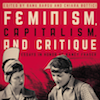 |
Edited by Banu Bargu and Chiara Bottici - Feminism, Capitalism, and Critique: Essays in Honor of Nancy Fraser. Palgrave Macmillan, July 2017. This edited collection examines the relationship between three central terms—capitalism, feminism, and critique—while critically celebrating the work and life of a thinker who has done the most to address this nexus: Nancy Fraser. In honor of her seventieth birthday, and in the spirit of her work in the tradition of critical theory, this collection brings together scholars from different disciplines and theoretical approaches to address this conjunction and evaluate Fraser’s lifelong contributions to theorizing it. |
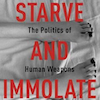 |
Banu Bargu - Starve and Immolate: The Politics of Human Weapons. Columbia University Press, September 2016. Starve and Immolate tells the story of leftist political prisoners in Turkey who waged a deadly struggle against the introduction of high security prisons by forging their lives into weapons. Weaving together contemporary and critical political theory with political ethnography, Banu Bargu analyzes the death fast struggle as an exemplary though not exceptional instance of self-destructive practices that are a consequence of, retort to, and refusal of the increasingly biopolitical forms of sovereign power deployed around the globe. |
|
|
|
